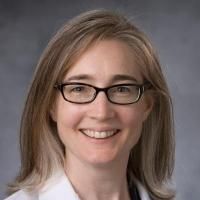Neuropathology is the subspecialty of Pathology and Neurosciences with special expertise in diseases of the central and peripheral nervous system and its coverings, the eye, and skeletal muscle.
Neuropathologists diagnose brain and spinal cord lesions removed at surgery and at autopsy. The tissue is examined grossly and microscopically for signs of neoplasms, vascular disease, inflammatory processes, neurodegenerative disorders, developmental abnormalities, and other pathological processes. The neuropathologic diagnosis thus plays an important role in patient care, and postmortem diagnosis may be important for families at risk of disorders which have been shown to have a genetic basis.
Neuropathologists play an essential role at academic medical centers where they provide clinical, research, and educational support alongside colleagues in neurosurgery, neurooncology, neurology, and neuroradiology. Our service annually examines approximately 250 autopsy brains, 50 nerve biopsies, 250 muscle biopsies, 800 ophthalmic biopsies, and 2000 neurosurgical cases. Graduates of our neuropathology fellowship training program are on faculty in academic medical centers and are members of the American Association of Neuropathologists.






